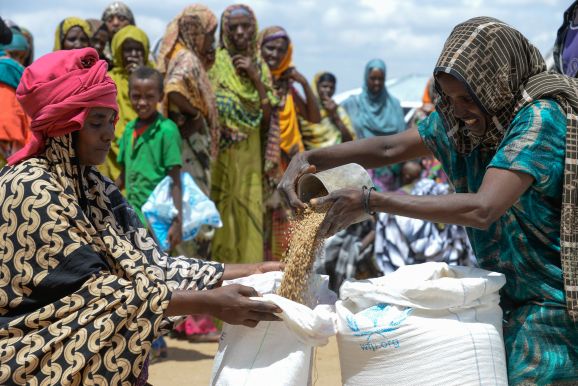The Ethiopian government’s National Disaster Risk Management Commission and the UN World Food Programme (WFP) on Monday launched in Addis Ababa a global conference brainstorming on how to provide ‘transformative food assistance for zero hunger.’
The meeting was borne out of the realization of a need for a new way to look at and address problems in the world’s food systems with a view to attaining the Sustainable Development Goal 2 of Zero Hunger by 2030.
Currently 820 million people are chronically hungry around the world, according to UN figures.
The fact that 125 million are acutely hungry, meaning they lack access to enough food to live healthy lives, suggests food systems do not work in ways to meet the needs of the many.
Over 200 participants are in Addis Ababa for the two-and-a-half-day meeting.
They are national policymakers responsible for food and nutrition security, food assistance practitioners from humanitarian and developmental organizations, donors and philanthropic bodies and food security academics.
The event will focus on increasing awareness of the scope and depth of food assistance, and on developing consensuses on priorities for policy reform, institutional innovation and investment toward transformative food assistance in different contexts.
Critically, the group hopes to achieve a consensus on an action plan toward the creation of a Global Centre for Transformative Food Assistance in 2020 to be based in Ethiopia.
“We are seizing an opportunity by convening here in Addis Ababa, and by proposing that the Global Centre is established in Ethiopia,” said WFP Representative and Country Director in Ethiopia Steven Were Omamo.
“Ethiopia has a solid knowledge and track record of delivering food assistance in scale. The design and implementation of food assistance strategies are embedded within its institutions. That scale is indicative of how Ethiopia is already leveraging and influencing food systems,” he added.
The World Food Programme is geared towards saving and changing the lives of millions of people in emergencies and through sustainable development.
WFP works in more than 80 countries around the world, feeding people caught up in conflicts and disasters, and laying the foundations for a better future.
MG/as/APA


